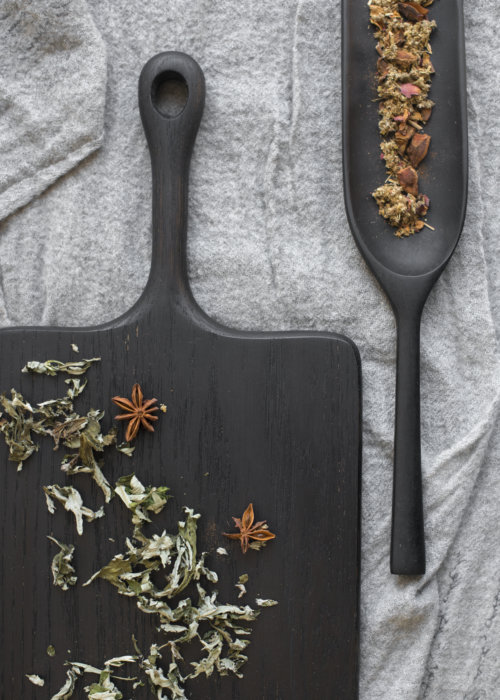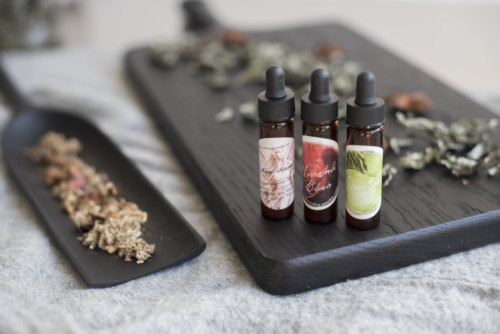
Rebecca Fey Gives GC a Tutorial on How To Use Herbs for Dreamwork
In Search of a Greener New York is an ongoing Garden Collage series of explorations about sustainability efforts in New York City and beyond– including the people, places, and ideas that are making Manhattan a healthier, happier place to live. In this column, we spotlight individuals who are making New York a “greener” place in an attempt to discover how, exactly, they are doing it. This week, GC spotlights Rebecca Fey, who works with herbs to cultivate dreams.
Dreams and dreaming have long evaded objective definition, particularly in Western medicine and science, where there is no consensus on why they happen, what evolutionary advantage they afford, or how exactly they compose themselves. Dreams can make impossible scenarios seem terrifying real, and can invoke people and places you don’t even realize you remember. (Who hasn’t felt their opinion of someone change after meeting them in a dream?) In short, dreams are one of the universe’s enduring mysteries.
Given the multifaceted perception of dreams in American culture, it’s of little surprise that when we ran across Rebecca Fey‘s workshop on “herbs for dreamwork”, we were intrigued. We’ve covered natural remedies for insomnia in the past, but never before have we ventured into that more amorphous realm of dreamwork. Part spirituality, part herbalism, dreamwork can encompass any number of goals. “A lot of people are trying to work up to lucid dreaming, which is where you are able to take an active role in your dream and sort of control the storyline, like a ‘choose your own adventure’. But obviously you don’t just jump into that,” Fey explained to GC. “So dreamwork, for some people, is as simple as being able to access and remember your dreams. For other people it’s about dreaming more frequently or more vividly. For some people it’s about being able to set intention and [ask] questions, and trying to get guidance through your dreams on an answer or direction to a situation.”
Fey has had a long standing interesting magic, but it wasn’t until moving to New York– where she apprenticed at Flower Power— that she became immersed in herbalism. As with any botanical discipline, there are certain herbs associated with dreamwork. Fey lists off mugwort, star anise (“it’s not dream-specific, it’s more about opening your psychic energy, intuition energy”), damiana (“for gentle dream work…it’s also an anti-depressant and an anti-anxiety herb– it’s good for triggering dreams”). “Cinnamon is a great one that everyone has in their cabinet that’s actually really good for triggering psychic work, as is nutmeg,” Fey added. “If you’re someone who wants to use dream work to help bring you clarity and answers, adding herbs like cinnamon, nutmeg, and star anise is great because they help open that psychic attunement so that you can receive the messages in your dreams. If it’s more in a direction of you wanting to take your dream work towards lucid dreaming, or the steps leading up to that, then the mugwort and the calamus and the damiana are great herbs to work with…Even something as simple as peppermint is really good for sharpening details in your mind. That’s very good for people who are trying to use their dream work to receive psychic messages to help them with the fine-tune moments of the dream,” she adds. For those new to dreamwork, Fey has a slightly different set of recommendations: “Dandelion and peppermint are great gentle herbs to start with. Lemongrass is a really good gentle dream herb.”
The most obvious way to incorporate herbs for dreamwork is through tea (Sleepytime, anyone?) but not all herbs for dreamwork can be consumed– and not all should be consumed. “It’s good to not just drink your herbs but to also do baths in them before you go to sleep,” Fey revealed. “People’s bodies respond to different things– for some people it works really well to burn the herbs in their space. For some people, who are super energetically sensitive, burning the herbs feels a little bit too overwhelming. If I’m doing an herbal bath for spiritual energetic work, I like to boil the herbs for half an hour and then add them to regular bathwater like tea. Or you can do the same thing– make a strong tea with the herbs– and wash your space. That’s a gentle way to charge the area. You can put it in spray bottles and spray it around your bed so that you change the energy field.”
Yet even herbs must be consumed in moderation– just because they are natural doesn’t mean they can’t be potent (or even dangerous). “People don’t necessarily always think about how strong of an effect herbs can have on their body,” Fey warned. “Your body still needs recovery work from dream work…Lemon verbena actually helps block dreams. If you feel like you’re opening really fast and you need a restful night, that’s a good one to use.”
In general, Fey sees dreamwork as a way to offset the drawbacks of the modern world. “I think people have maxed out on processed foods, on pharmaceuticals, on the cost of doing things in that way, and they’re trying to learn to get back to using the medicine from the earth to heal themselves. At the same time as people are feeling that, they’re also looking for earth-based spirituality processes. There’s a huge movement towards being in touch with your inner self, so it’s becoming much more mainstream for people to take some sort of practice, whether it’s studying divination work or just finding their own meditation practices.” Reflecting on the growing interest in this more alternative avenues of care, Fey concludes: “I think people are taking a lot of comfort from returning to the earth. Because I think there’s empowerment in understanding what you’re putting in and around your body, and why it’s doing the things that it’s doing. That’s way different from getting a pill from your doctor. I think that it’s helping people to find peace and control.”



































